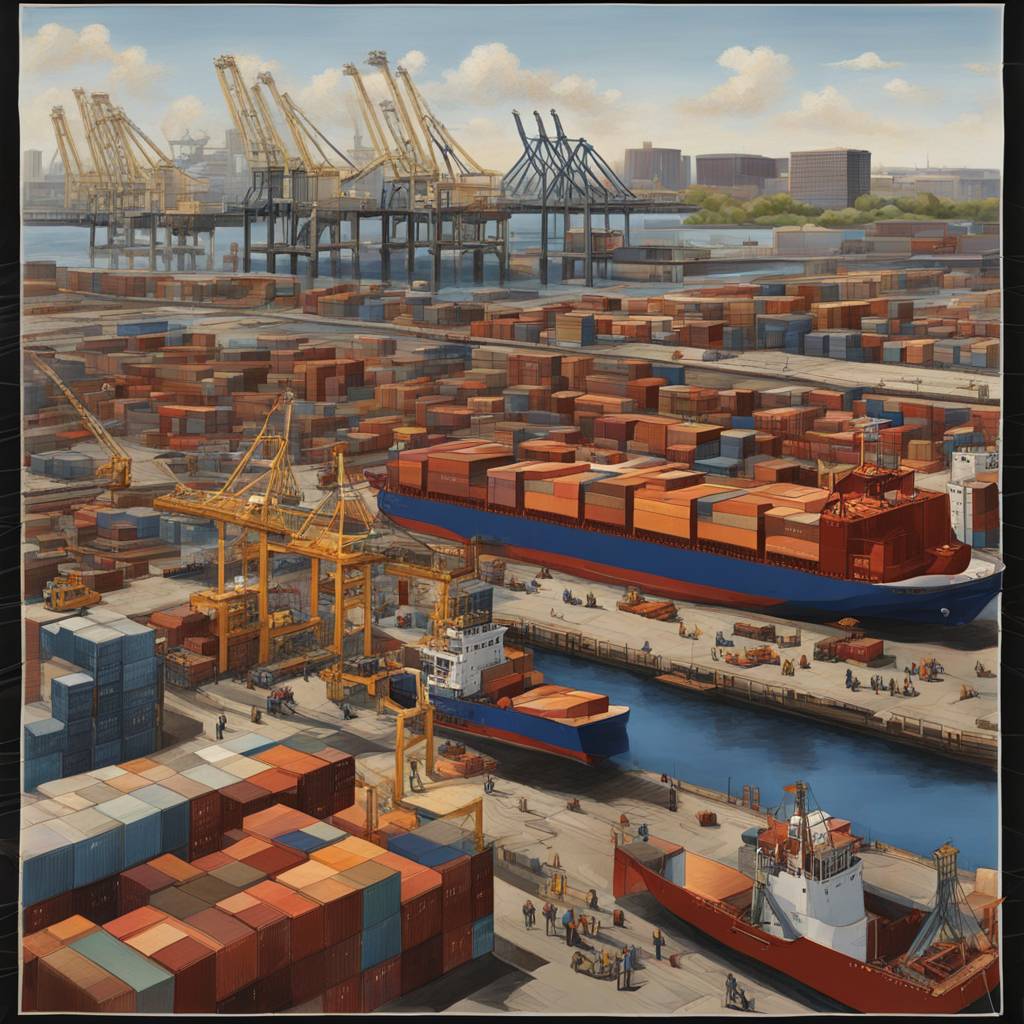The Port of Baltimore is experiencing severe disruptions in cargo shipments after a container ship crashed into the Francis Scott Key Bridge, resulting in the collapse of the bridge and the deaths of six construction workers. This incident has put the livelihoods of thousands of workers at risk, including longshore workers, crane technicians, and daily hire longshoremen. The port generates $2 million in wages daily for these workers, making it a critical source of income for many families. With cargo shipments halted, workers are facing uncertainty and financial strain as their hours are being cut and lucrative overtime opportunities are disappearing.
The port’s closure is having a significant impact on the local economy, with an estimated 15,300 direct jobs and 140,000 linked jobs at stake. Maryland Governor Wes Moore has listed reopening the port as a top priority and is taking steps to provide financial relief to affected businesses and workers. The Small Business Administration has approved a disaster declaration, allowing small businesses to apply for low-interest loans of up to $2 million. Additionally, state lawmakers have introduced the Protecting Opportunities and Regional Trade Act (PORT Act) to provide temporary financial support to workers and businesses affected by the port’s closure.
Union officials are advising workers to seek deferred payments from mortgage, car, and credit card lenders to help navigate the financial challenges during the port’s closure. The International Longshoremen’s Association is set to hold an emergency meeting to discuss next steps, while state lawmakers work towards passing legislation to support port workers and businesses. The proposed PORT Act includes assistance for regularly paid port workers who do not qualify for unemployment benefits, help for businesses to retain their workforce, and incentives for companies to remain in Baltimore long term.
Despite the ongoing challenges, there is hope for a resolution as efforts are made to expedite the reopening of the port. Governor Moore has emphasized the importance of supporting small businesses and keeping workers employed during this economic emergency. The state government is looking to learn from past experiences, such as the pandemic, to provide effective relief measures to mitigate the impact of the port’s closure. If the legislation is passed, it will go into effect immediately upon the governor’s signature, providing much-needed support to those affected by the disruptions in cargo shipments.
As workers and businesses await a resolution, the impact of the port’s closure is being felt across the community. Families are facing financial uncertainty, and the bustling summertime season, which was expected to bring increased business, is in jeopardy without the reopening of the port. The importance of the port as a vital economic hub for the region is clear, and the efforts to support workers and businesses during this challenging time are crucial for maintaining stability and ensuring a swift recovery once the port resumes operations.















